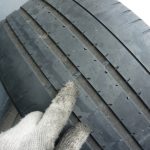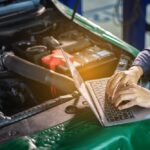Why You Need a Diagnostic Test After a Car Wreck
So, you’ve been in a car accident where your car survived, although it’s a little worse for wear. As long as it still drives you from point A to point B, it’s fine, right? Not so fast—before you start driving your car again, you need to get a post-collision diagnostic test in Lubbock, TX. Even minor fender benders can have far-reaching consequences that may not reveal themselves until much later on.
For your own safety and for the sake of keeping your car running as long as possible, schedule a diagnostic test as soon as possible. Your local mechanics can spot problems that may not be obvious to the average layperson.
Hidden damage after a wreck
Even if your car’s exterior only has a few dents and scratches, hidden damage can lurk underneath. For example, you might find that the battery life has been reduced thanks to the impact shaking plates and fluid loose. The check engine light may go on and off intermittently, or you could see fluid leaking from the transmission, radiator, brakes and more. Your electronic systems, including sensors and wires, may be damaged from the impact. This is almost impossible to spot until the system starts malfunctioning, so having a skilled mechanic look your vehicle over is key.
Collisions commonly ruin your car’s alignment, which is key to even tire wear and safe operation. Small fender benders may not require new alignment, but if you were in a more serious wreck, you’ll likely need to have the alignment readjusted.
Typically, issues pop up as you start driving your car around—usually within the first 30 days after an accident. Pay close attention to the warning lights and gauges in your vehicle, and if you notice anything odd, take it in right away. Insurance will often help cover these repairs as “supplemental repairs.”
What a diagnostic test entails
Diagnostic tests are performed by connecting your car’s computer to a scanner, which will let the mechanic know if there’s anything wrong with your vehicle. This includes the electronic system as well as physical problems that may not be visible from the exterior. Once the auto diagnostic test is performed in Lubbock, TX, your mechanic will know how to approach repairs.
Diagnostic tests are particularly useful in modern cars, where it can appear that the problem stems from a different part. This ultimately saves you time and money in the long run, since you won’t waste any of either on repairs you don’t need (and trips back to the mechanic to try again).
Look for a mechanic who can work with your specific make and model, particularly if you drive a foreign model or have a brand-new car. Most modern cars have over 200 sensors in their systems—some experts compare them to sophisticated computers—so working with a team that knows your car type is important.
Need a post-collision diagnostic test in Lubbock, TX? M & M Tire & Service Center has you covered. Get in touch with us to schedule an appointment!
More...
Categorised in: Diagnostic Codes
This post was written by Writer





